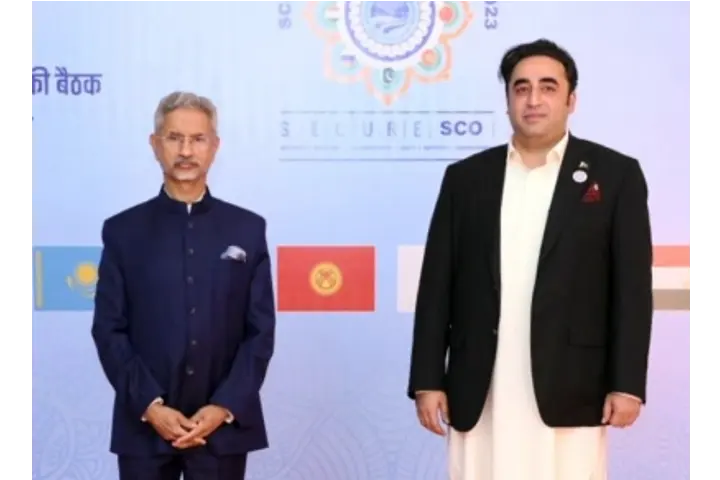“Unless India reviews the action it took on August 5, 2019 (abrogation of Article 370), Pakistan is not in a position to engage bilaterally with India,” Pakistan Foreign Minister Bilawal Bhutto Zardari, who was in India last week to attend the Shanghai Cooperation Organisation (SCO) summit, told India Today in an interview. That left many in India scratching their heads. Pakistan is on its knees, reeling under existential crises. Yet, a delusional Bhutto was stubbornly latching on Kashmir and Article 370. The scion of the Bhutto clan obviously had no time for External Affairs Minister S. Jaishankar’s sage advice directed at him during the Goa SCO conference. “…Wake up and smell the coffee. 370 is history. The sooner people realise it, the better it is,” Jaishankar had stressed.
For the big boys in India, Pakistan is boring. In fact, it does not feature prominently on its foreign policy radar anymore. China is the real game in town. Pakistan is passe.
Pakistan’s empty arrogance borders on the bizarre. Last year, despite the devastating floods that brought unparalleled damages to people and the economy, Pakistan Prime Minister Shehbaz Sharif said that trade with India will not be resumed until the Kashmir issue is resolved.
“There won’t have been problems about trading with India but genocide is going on there and Kashmiris have been denied their rights. Kashmir has been forcibly annexed through abolition of Article 370,” Sharif said.
Sharif earlier sought the UAE’s help to resolve the Kashmir issue and oversee talks with India. That ploy is now out of gas. The UAE has termed the Kashmir issue as an internal matter of India. Similarly, Saudi Arabia too maintained neutrality on Kashmir.
On the contrary, in March, the first tranche of foreign direct investment flowed into the Himalayan state with Dubai’s Emaar Group announcing to set up a $60 million shopping and office complex which could generate about 8,000 jobs. More investments are set to flow into the region in the coming months.
Meanwhile Islamabad suspended trade with India in August 2019 after New Delhi decided to abrogate Article 370 removing the special status of Jammu and Kashmir. Earlier in 2019, after the ghastly Pulwama incident which left 40 Indian soldiers dead, India withdrew the ‘Most Favoured Nation’ status accorded to Pakistan.
Pakistan also downgraded diplomatic ties with India. There has been a status quo since then even as several voices opined the need for Pakistan to resume economic engagements with India and delink politics and economy.
Pakistan and Bangladesh: Difference in outlook
Perhaps, Pakistan can take a cue from Bangladesh. India and Bangladesh have forged ahead with deepening political and economic cooperation. “The thrust for both nations have been on issues that help in building bridges, for example in spite of the thorny issue of Teesta river water sharing, the two nations have managed to build a bond as trustworthy neighbours,” an analyst told India Narrative.
An article published by Dawn in 2019 highlighted that Bangladesh, which was born only in 1971 and was considered a poor cousin of Pakistan after the bitter war, has emerged as a strong economy in the last five decades. Bangladesh Prime Minister Sheikh Hasina, the article noted, has successfully steered the country away from extremism and radicalism.
“Bangladesh sees its future in human development and economic growth. Goal posts are set at increasing exports, reducing unemployment, improving health, reducing dependence upon loans and aid, and further extending micro credit,” an article carried by the Pakistan based Dawn said in 2019. “For Pakistan, human development comes a distant second. The bulk of national energies remain focused upon check-mating India,” the article added.
Unfortunately, Pakistan has failed to learn its lesson. It needs to realise that India-bashing exercise will not solve its crumbling domestic situation or arrest precipitous fall downhill.
Also read: China ready to ‘cool down’ situation along border in first sign of rethink on Eastern Ladakh
Hungry Pakistan dismayed as untimely rains ruin rice, maize and sugarcane crops




















